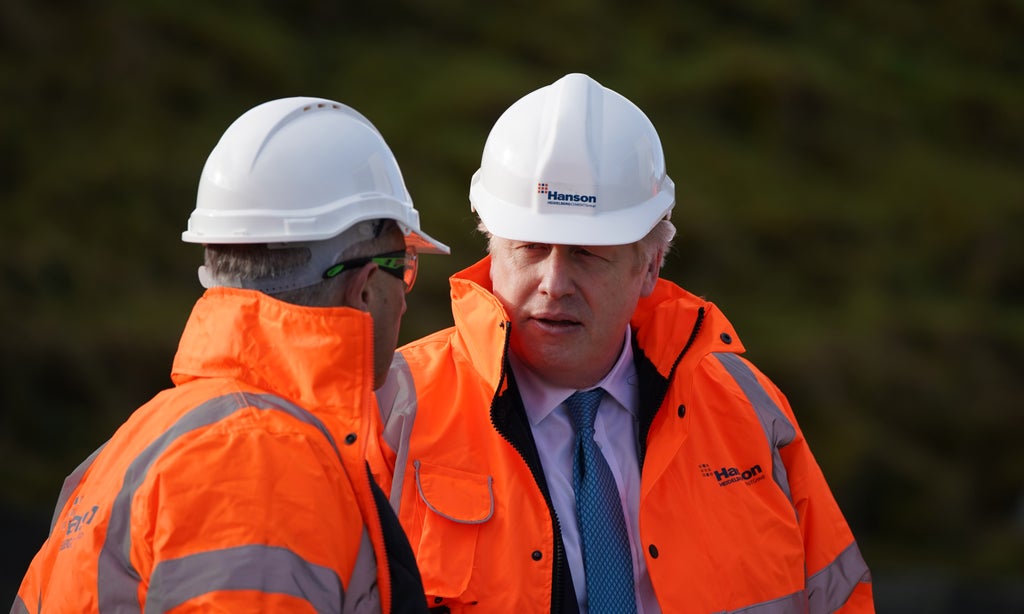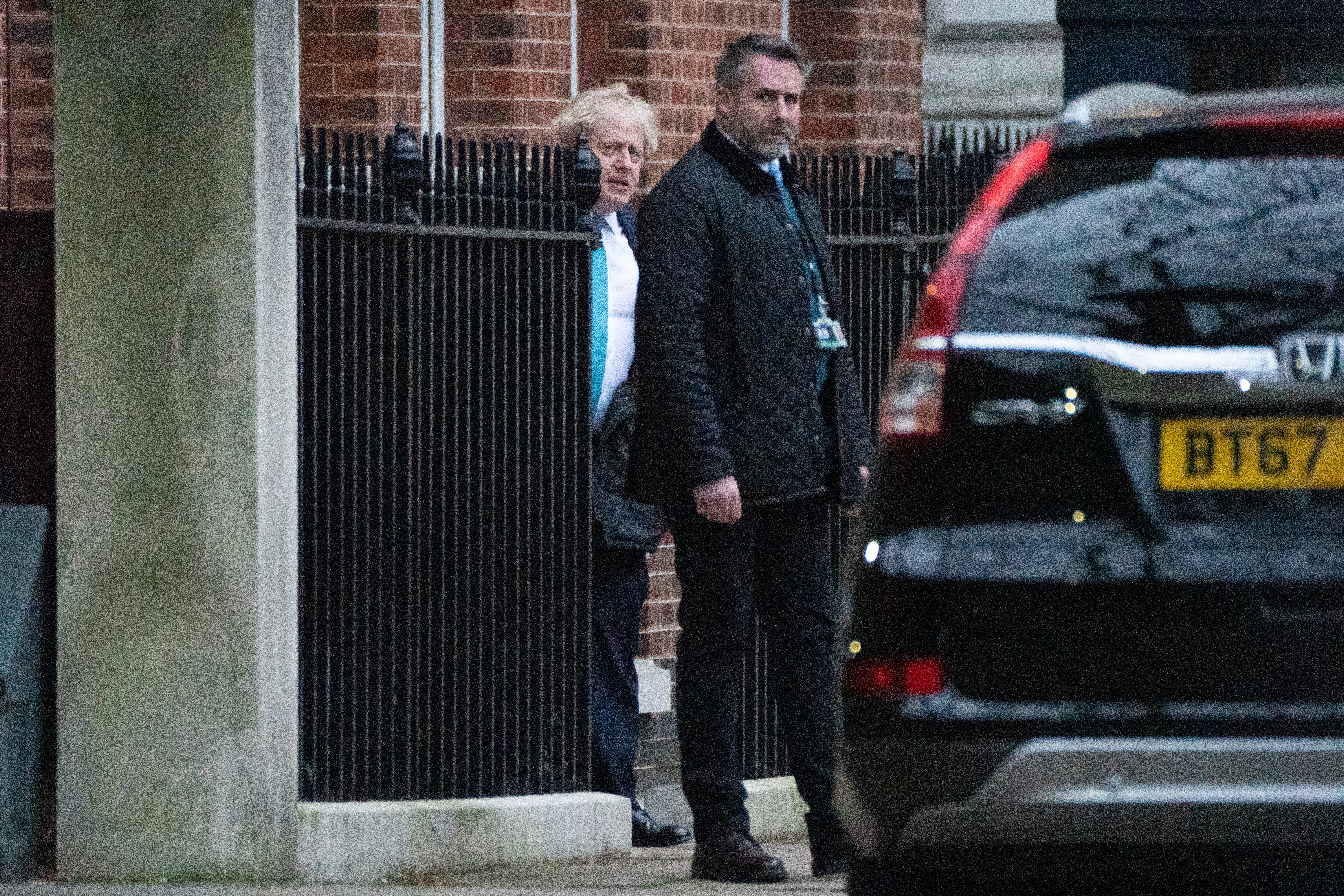
Boris Johnson’s wait for the findings of an official inquiry into lockdown-busting parties in No 10 and Whitehall continues, with the Prime Minister insisting he was not responsible for any delay to the report.
The highly anticipated document from senior civil servant Sue Gray could be pivotal for the Prime Minister’s future but it has yet to be submitted to No 10, with legal and human resources officials scrutinising it before it can be sent to Downing Street for publication.
The announcement of a Scotland Yard investigation into some of the alleged parties – based in part on the evidence uncovered in the Gray inquiry – has complicated the process, with police and officials wrangling over anything which could prejudice a criminal case.

The Prime Minister travelled to North Wales rather than wait in No 10 for Ms Gray’s report to arrive.
Asked if he had been involved in delaying it, Mr Johnson told reporters: “Absolutely not but you’ve got to let the independent inquiries go on.”
He said “of course” it would be published in full, but officials have made clear that is only the intention of No 10, as they are not yet aware what the format will be and whether any sensitive personal or security information would need to be redacted.
Mr Johnson’s official spokesman said “we are in no way seeking to block the report” and “it remains our intention to publish the report as it is received from the investigation”.
The Prime Minister has committed to making a Commons statement once he has received the report and this remains a possibility on Friday, even though no Government business is scheduled in the Chamber.
But Ms Gray’s report, which had been close to finalised, has been held up by the legal checks it is now going through, raising the prospect of the process dragging into next week.
Labour leader Sir Keir Starmer told the PA news agency: “The Sue Gray report needs to be published in full and as soon as possible.
“And I mean in full – not redacted, not edited, not a summary, not parts left out. In full.”
He said that after the sacrifices made by the British public during the pandemic “the least that they’re entitled to is the truth about what the Prime Minister was up to”.
With the majority of Tory MPs waiting for the report before passing their own judgment on the party leader, allies of the Prime Minister rallied around him.
Culture Secretary Nadine Dorries became the second Cabinet minister to warn that ousting the Prime Minister could trigger a general election.
This could leave many Tory MPs, particularly those in the Red Wall of former Labour heartlands won in Mr Johnson’s 2019 landslide, nervous about keeping their seats.
There is no requirement for a new leader to hold a general election, but Ms Dorries said previous handovers, such as Tony Blair to Gordon Brown, had taken place in “different times”.
Writing on Twitter, she said: “Blair as example of why we won’t need GE is wrong.
“It was yonks ago Blair to Brown smooth pre announced handover, no leadership election.
“Brown was still pressured to go, bottled it and then lost. V different times pre rolling 24hr news / social media.”
Her comments echoed Jacob Rees-Mogg, the Commons Leader, who said the UK now had “essentially a presidential system”, so any new leader would need their own mandate from the electorate.
In the Commons, Mr Rees-Mogg said: “The reality is that the British elector looks to a leader, and it is very pleased with the leader that it has got.”
If the outcome of the Gray report is significantly damaging, Mr Johnson could face a revolt from his own MPs, who may choose to call a vote of no confidence.
He is under pressure from some Tory MPs to scrap a planned hike in national insurance to win back support.
The Commons Treasury Committee warned in a report released on Thursday that the rise in employer national insurance contributions would contribute to a rise in inflation.

But Mr Johnson said the tax rise was “absolutely vital” as “every penny will go towards fixing the Covid backlogs and also social care”.
Asked to guarantee the rise would still come into effect in April, the Prime Minister’s official spokesman said there were “no plans to delay the levy”.







